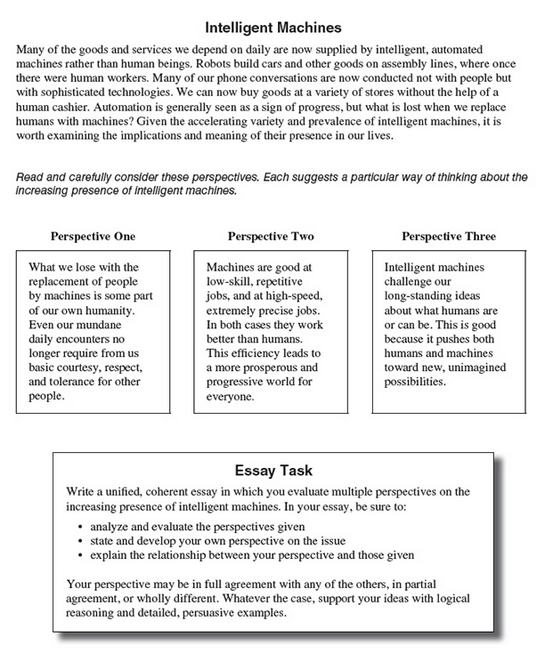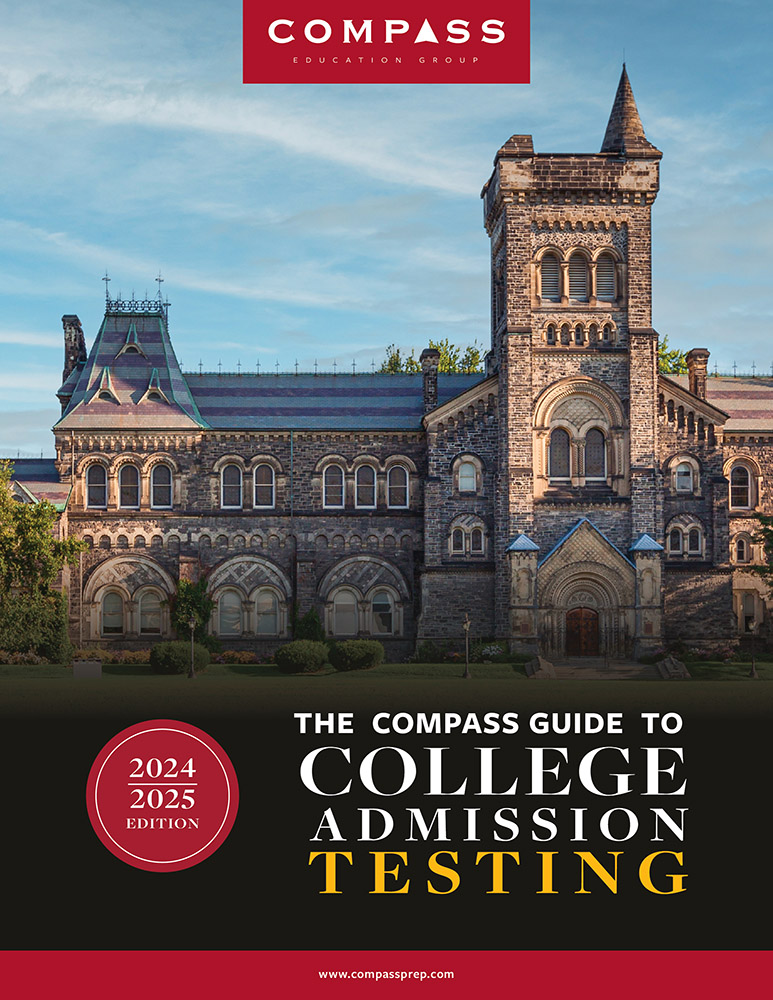
Beginning this September, the ACT Writing Test essay assignment will have a new purpose, format, and scoring. But is it the impossibly difficult task that students fear it to be? I believe that with practice and focused pre-writing, students will find this new essay assignment to be just as manageable as the old one. For a step-by-step guide on how students should approach the new essay, click here.
The Old Assignment, But with Transparency
The ACT Writing Test used to ask students to take a position on an issue relevant to teenagers: locker searches, after-school sports, community service requirements, etc. “Some people” would have a positive view of the topic and “others” would have a negative one. The assignment set up a polarized debate and asked students to pick one of the positions or defend their own. The most successful writers often struck out on their own paths of argumentation.
Instead of focusing on teenage issues, the new writing assignment focuses on significant social issues: technological developments, health care, education, etc. With the addition of a third perspective, the assignment seems to move from the debate model of opposing opinions to a more nuanced, conversational model. In this regard, the redesigned essay feels like an entirely new writing assignment. However, I’d like to suggest that the expectation for nuance was present in the old exam; it was just tucked away in the scoring rubric, which previously stated that an essay receiving the highest scores “addresses complexity by examining different perspectives on the issue, or by evaluating the implications and/or complications of the issue.” What the ACT has really done is take what was required for high-scoring essays and make it an explicit aspect of the prompt. It is now a more transparent assignment.
The New Assignment: A Detailed Look
The writing prompt from the ACT website provides a useful example for a more detailed discussion.

The new assignment opens with a broad overview of the issue. Then it presents a variety of general examples (employment, communication, commerce) that can help spur students’ brainstorming of specific examples. For instance, the paragraph states, “without the help of a human cashier,” and a student might remember a package she just received from Amazon or her friend who works as a cashier at his parents’ convenience store. The paragraph closes with a sentence that gestures toward why this issue should matter to everyone, not just to teenagers.
Three discrete perspectives follow. While the first and second perspectives are often opposed in some way, they are not a direct yes/no or pro/con binary, but instead imply different systems of values in conflict. In the example above, the first perspective emphasizes interpersonal connections and the empathy that develops from interacting with diverse people. The second perspective does not deny what the first is suggesting, but focuses on another value: efficiency. Often, the third perspective will approach the topic from an entirely different direction, adding an aspect or consequence that has been overlooked by the other two. In this case, the third perspective considers how the very definition of the human and its limitations is changing.
The idea here is that all three perspectives are valid positions held by reasonable people. This is not a polarized debate, but a complex set of conflicting values in tension. In other words, the new assignment is an allegory for the complexities of life. This is the kind of discussion students will face in college and throughout their adult lives.
Finally, the essay prompt explicitly directs students to analyze and evaluate the perspectives, develop their own perspective, and explain the relationships between the perspectives. Given the 40-minute time limit, this can seem like an overwhelming task; as one college counselor recently said to me, it seems like “an assignment more appropriate for a law school entrance exam.” However, it can be manageable if students are methodical about how they approach their process and remember that this is just a new twist on the old assignment, not a brand new one.
A Few Thoughts about Why the ACT Essay Is Changing
The one question I’ve heard repeated the most by parents and counselors is why? Why this change and why now?
One thing to keep in mind is that both the ACT and the SAT are intended to be predictive indicators of students’ success in college. The trend in first-year writing classes has been to move away from debate-style argumentative essays and toward more inclusive forms of writing that situate perspectives within “the conversation,” or sometimes, “the academic discourse community.”
I’ve spent years teaching these college classes, and the one thing I’ve found that students struggle with the most is asserting their own voices while valuing the contributions of others. Most college freshmen either accept every source uncritically or refuse to concede any part of an argument that refutes their thesis statements. It takes time for students to develop the confidence in their own perspectives while acknowledging the value of others’ ideas, and it takes practice to develop the skill to interweave these multiple perspectives.
The recent changes to the ACT reflect this shift in what colleges are expecting students to be prepared to write.
On a broader level, this change suggests a widespread weariness with entrenched partisan debates. Perhaps the ACT is attempting to do its part in forming the next generation of critical thinkers who won’t automatically take a position and defend it with their rhetorical skills and a baseball bat, but will actually hear what others have to say and understand that conflicting ideas can both be right. Granted, that’s a lot to ask of a test, and in only 40 minutes it may be an unrealistic goal, but maybe, just maybe, it’s also a noble one.
If you would like more information about the ACT or are interested in test preparation with Compass, please contact our team of directors. We look forward to hearing from you!


One Comment